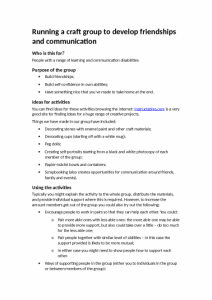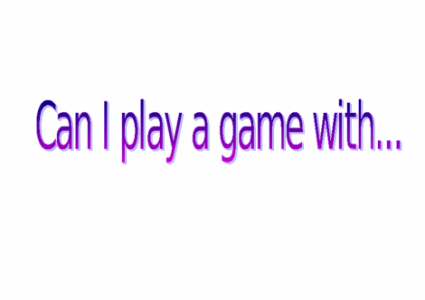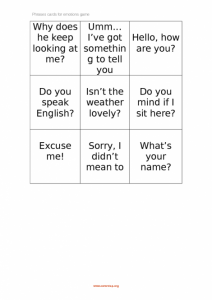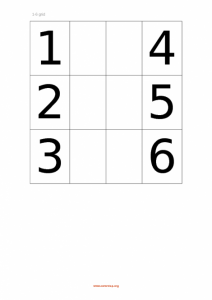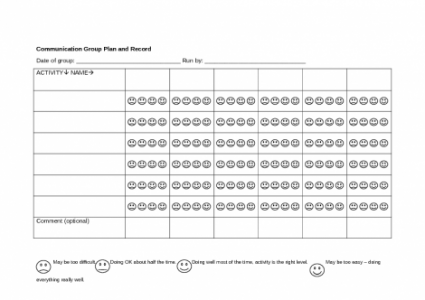Search
User login
Topic “Social Skills”
Activities to develop early turn taking skills
| Activity/strategy name and materials required | How to do the activity | Key principles for doing the activity and comments |
|---|---|---|
| Ball Roll - a ball |
| To extend this activity, you could add extra people to roll the ball to (small group).
|
Running a craft group to develop friendships and communication
This provides suggestions for developing friendships and communication skills through running a craft group: particularly suitable for adults with a range of learning disabilities.
Created 21 July 2015.
Initiation prompt cards
Examples of prompt cards you could use to help a child initiate - includes the main part of a sentence which the child may need to fill in using a name. Example activity.
Created 18 October 2012; updated 8 December 2015.
Robert's Friend
One day there was a boy called Robert. He was starting at a new school. On his first day, he met lots of children in his class. At playtime, he went outside with everyone else. Some children played football. Some children played hopscotch. Some children ran around and played tag. Robert wished he could play. He didn’t know anybody yet.
Phrases cards for emotions game
Created 18 October 2012; updated 30 April 2022.
1-6 Grid
Grid containing the numbers 1 to 6. This can be used in a number of games - for example this emotions game.
Created 18 October 2012; updated 30 April 2022.
Sources of Information, Support and Additional Resources
Created 10 October 2012; updated 2 August 2025.
Games and activities to help develop social skills
Created 2 May 2012; updated 23 March 2022.
Games and activities to help develop social skills
It can be difficult for some children to identify and understand social cues. To help develop the social growth of these children, there are lots of fun ways to help improve their social skills.
Smiley face group progress sheet
Quick therapy/lesson evaluation sheet - using a rating scale of four smiley faces.
The idea is for the child/person to evaluate themselves in terms of how well they were able to do the activity. This helps the person running the activity to select harder or easier activities as time progresses - keeping them at a level where there is generally a high degree of success.
Created 16 February 2012; updated 16 July 2015.
Support Commtap to keep it online
Thank you for visiting Commtap.
Please read this message as it is extremely important.
- Visitor donations mean we can continue to host over 1,000 free activities to support speech, language, and communication development.
- Visitor donations mean we can continue to provide free resources to address a wide range of communication needs, including limited speech or language, interaction challenges, and needs associated with conditions such as developmental language disorder, autism, and cerebral palsy.
- Visitor donations mean we can continue to provide resources to support the work of speech and language therapists, teachers, teaching assistants, parents, and carers.
- Visitor donations mean we can continue to provide the free key word sign dictionary (bks.org.uk) which has over 2,000 Makaton and Signalong signs.
We know that not everyone is able to afford to pay to access these resources, however, if you can, please make a donation to keep the site going.
Thank you
Google ads on this page are provided by Google Adsense - and their presence does not imply any endorsement by Commtap. Report a problem with an ad on this page. Log in (for free) to avoid seeing Google ads.

